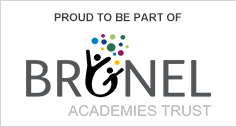Pupil Premium
Pupil premium is additional funding allocated to all schools in England to support disadvantaged learners (DL) and close the gap between them and their peers. This budget includes pupils who are currently entitled to free school meals, have been free schools meals in the past six years (FSM ‘Ever 6’), children that are cared for or adopted from care and children whose parents are in the armed forces.
How should the money be spent?
It is entirely up to individual schools to decide how the pupil premium is spent, however there is an expectation that schools can prove the impact this money has had on its disadvantaged pupils. It is imperative that as a school we fully understand each of our disadvantaged pupils and know exactly what they need to help them to ‘be the best they can be’ in their learning. At St Mark’s our approach is simple; we invest our time in getting to know our pupils really well, not just their academic ability and progress but also the whole child. We work hard to fully understand what support a pupil may need to help them achieve in a specific area and we involve them in the process.
We acknowledge that no one child is the same and therefore ensure the support they receive is tailored to their individual needs; whether it be welfare support, individualised learning programmes, enrichment activities to boost confidence, self-esteem and general enriching experiences or even support to develop friendships.
Our approach
At St Mark’s we seek to ensure the effectiveness of our use of the pupil premium. We recognise that barriers to achievement take a variety of forms and therefore attempt to be innovative in the support that we provide. We use entry and exit judgments for all support that is being put in place and carefully track them to ensure progress is being made at all times. We evaluate our support plans throughout their timescales and we are not afraid to make changes if we feel this is appropriate. We do this by offering our children a wide range of opportunities and ensuring that these are accessible for everyone. We work with our families and colleagues to make sure everyone has high aspirations for all pupils. We ensure pupil premium children are well represented and have a voice on our school council, learning council and other pupil groups.
Pupil Premium Strategy Statement
Pupil Premium strategy and Impact statement
The next Pupil Premium review will take place in November 2026

